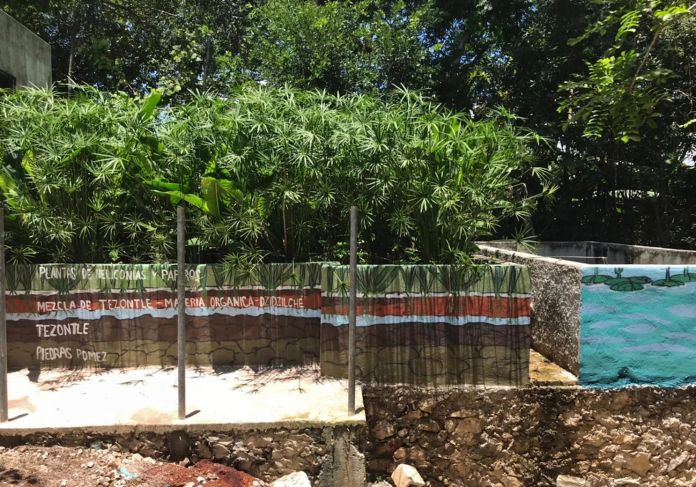YAXCABÁ, YUCATAN, (August 11, 2021).- The ‘Záaz Koolen Háa’ cooperative, located in Yokdzonot community of Yaxcabá municipality, with the support of researchers and students from the Autonomous University of Yucatán (UADY), created an artificial wetland in the town’s tourist Parador, this in order to protect the water table and raise awareness about the sustainable use of tourist cenotes. The project was inaugurated on July 27.
The artificial wetland, as detailed in the portal of the Small Donations Program (PPD), of the Global Environment Facility (GEF), is a technology used for the treatment of wastewater through natural filters, reducing the concentration of carbon, nitrogen, and phosphorus in the liquid.
Its main components are water, plants (plant component), microorganisms, and the substrate. The flora obtains its nutrients from the liquid that enters the system, eliminating contaminating microorganisms. The substrate has the function of filtering the solid remains and strengthening the vegetation with nutrients.
According to information from the PPD, the local cooperative has one of the largest cenotes in the state, with a water mirror 40 meters in diameter and an approximate depth of 45 meters. To descend it is necessary to go down 18 meters by wooden stairs. Since 2006, a group of Maya community residents, including housewives and farmers, supported by the then National Commission for the Development of Indigenous Peoples (CDI), and now the National Institute of Indigenous Peoples (INPI), decided to undertake a tourist company that by 2017 registered 40 thousand tourists visiting the Parador.
Due to these figures, the cooperative society, in collaboration with professors and researchers from UADY, as well as students of tourism, agroecology, renewable engineering, physics, and biology, began the design of the artificial wetland in order to prevent the effects of tourism on this cenote.
“The work was developed during two years of activities divided into five stages, from planning, construction, installation of substrate and plants, and monitoring of operation. Activities were temporarily interrupted by the Covid-19 pandemic and damage from last year’s Cristóbal storm.
During its construction, residents of the community and members of the cooperative participated. Its financing was supported by the Small Donations Program (PPD) of the Global Environment Fund (GEF), the Kellogg Foundation, and UADY ”.
TYT Newsroom


